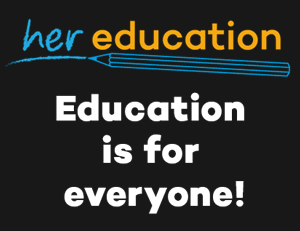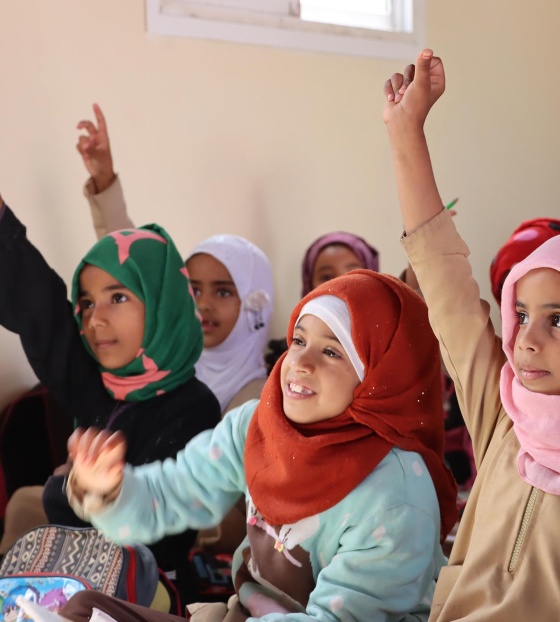

Transforming the future for girls in Yemen
After ten years of civil war, climate-related crises and a deteriorating economy, Yemen is facing one of the world’s worse humanitarian crises.
Over 4.5 million[1] people are internally displaced; two thirds of the population are in dire need of humanitarian assistance[2] and millions are struggling with ‘alarming’ levels of hunger[3].
Summer Nasser, CEO of Yemen Aid, our partner in the country, explains how, despite such living conditions, Mary’s Meals is helping to transform the future for young girls in Yemen.
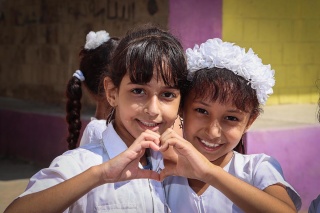
Challenges girls face in Yemen
During conflict, the first instinct for any family living in poverty is to merely survive. Education is usually a lower priority compared to meeting basic needs. Children are frequently required to help their parents by fetching water, working to earn money, or assisting with household tasks just to ensure their family can get by. The don’t have the opportunity to go to school. It’s not uncommon to see a child selling items on the street instead of sitting in a classroom because their family needs the income.
And even after all of that, the family may not have a meal at the end of the day or parents go hungry so their children can eat.
This creates a vicious cycle of poverty and means children don’t have the chance to build a better life for themselves and their families.
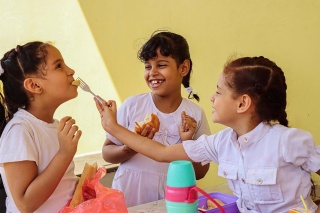
Girls in rural or impoverished areas face many obstacles and challenges. When money is tight or food is scarce, girls are the first to stay home. They’re expected to help with chores, care for siblings, or even marry young to ease the financial burden on their families. In remote areas, girls are often tasked with fetching water from distant locations during the day, leaving them no opportunity to attend school.
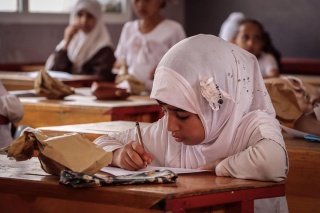
Making a difference with school meals
Education is vital for all, but advocating for girls is especially important. Educated women foster social stability, champion equitable policies, and take on leadership roles that drive change. Educated mothers prioritize their children’s education, breaking cultural stigmas and creating generational progress. In the long term, empowering girls strengthens Yemen’s economy and builds a more inclusive, resilient, and prosperous future for all.
The School Feeding Programme has shifted priorities for many families. The promise of a nutritious meal has encouraged parents to send their daughters to school, recognising the value of education.
This change not only ensures girls receive the meals they need to stay healthy and focused but also gives parents the chance to see their daughters thrive academically. As these girls excel in their studies, families witness their potential and begin to understand the transformative power of education.
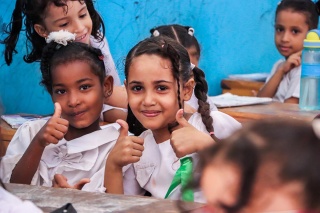
Narmeen's story
Watch how the promise of a school meal is helping Narmeen, from Yemen, access education.
How you can help children in Yemen
The highlight of the Mary’s Meals partnership has been witnessing the happiness and transformation it brings to children and their communities. Providing meals not only encourages families to prioritise education but also energises students to focus and thrive. Seeing children, especially girls, given the chance to learn and grow even in the most challenging circumstances, has been deeply inspiring and reaffirmed the importance of this partnership in creating hope and opportunity.
Please donate today and help us ensure that every girl can attend school and build a bright future for themselves and their communities.

[1] Yemen Refugee Crisis: Aid, Statistics and News | USA for UNHCR
[2] Yemen Refugee Crisis: Aid, Statistics and News | USA for UNHCR
[3] Global Hunger Index Scores by 2024 GHI Rank - Global Hunger Index (GHI) - peer-reviewed annual publication designed to comprehensively measure and track hunger at the global, regional, and country levels
